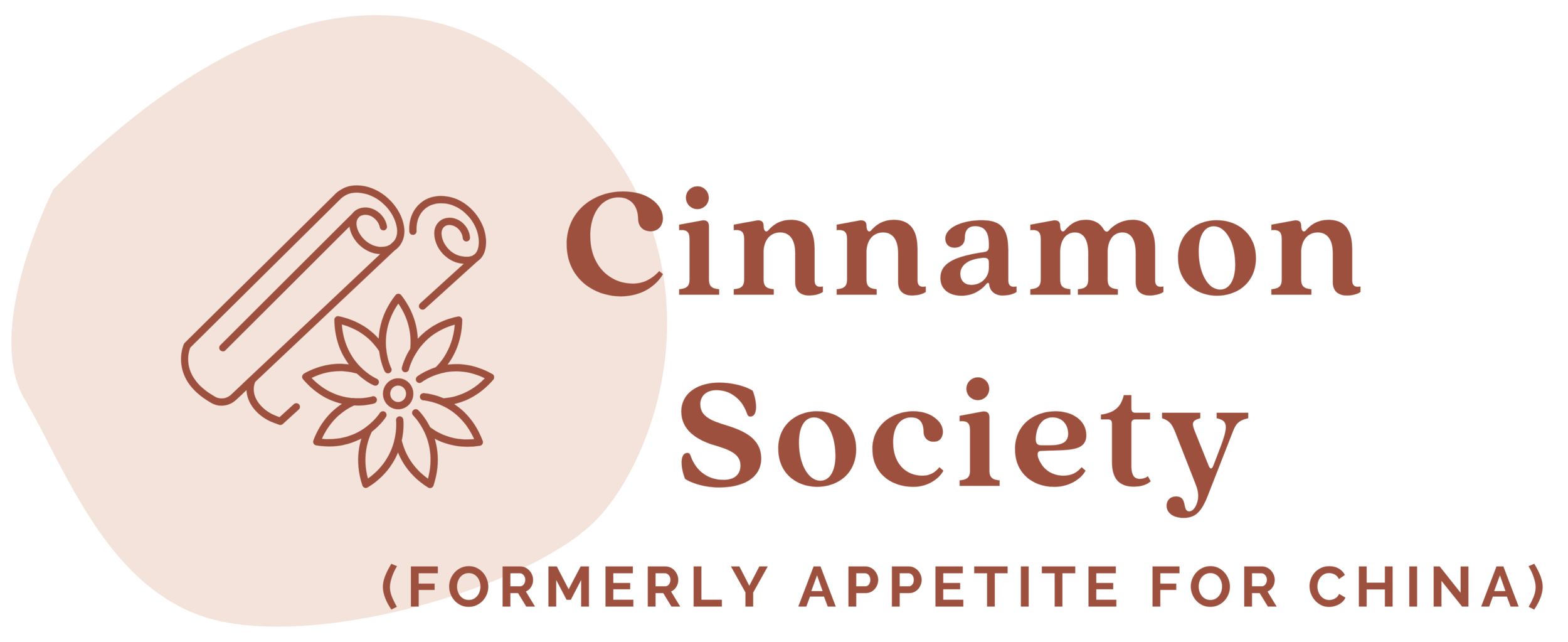Rose Tea Dessert Soup
I'm sure most Westerners who have ever dined with a group of Chinese are familiar with the the following scenario. After a ___-course lavish banquet, you look forward to something nice and sweet to cap off a great experience. Your Chinese hosts inform you that you'll love the dessert; all Westerners love dessert. This one is a Chinese specialty. Anticipation mounts. Then the long-awaited dessert arrives...in the form of red bean soup. You take one sip, utter an "Mmm!" with all the false bravado you can muster, and wonder if anyone will notice you "watering" that plant close by.
Yes, it is well known that most Chinese desserts are merely tolerated by Westerners. While I personally don't mind red bean soup or other sweet dessert soups every once in a while, other people, like a certain significant other of mine, have developed an intense fear of them. It's understandable. While in the West we crave and lust after rich chocolates, cakes, and pies, the Chinese palate can tolerate only moderately sweet things. Thus, Chinese desserts never seem sweet enough, but anyone living or traveling extensively in China can't help but encounter them again and again.
Not long ago I picked up an outdated Chinese cooking magazine from the bargain bin of a magazine stand. I was enamored of the existentialist thought-provoking photos inside, such as this gem:
But the magazine also had a feature on cooking with herbal teas: Beef Stir-fry with Rose Tea Sauce. Jasmine Tea Smoked Duck. Chrysanthemum Dessert Soup with Lotus.
Tangshui (糖水), which literally means "sugar water", describes any sweet soup, usually flavored with rock sugar, which has a smoother taste than regular granulated sugar when melted. For the first time in 6 months I didn't have any chrysanthemum tea on hand, but I did have plenty of rose tea. I decided to try out rose tea in my tangshui, since I already knew rose milk tea with sugar is a great combo.
The other ingredients, and some TCM tidbits:
Lotus seed 莲子 (lianzi) - Lotus seed's biggest benefit is helping to clear "heat", which every Chinese kid knows from repeated nagging is what you get when you eat too much fried or spicy food. In other words, it has cooling properties and balances out the "yang".
Goji berries/Chinese wolfberry 枸杞(gouqi)- Instead of red jujubes (which is traditionlly used in these dessert soups but whose taste I dislike) I used goji berries. According to TCM, I had just opted for better eyesight instead of better skin and more "heat" clearing. Other recipes with gojis: Chicken Congee with Goji Berries, Goji Oatmeal-Almond Cookies Cookies.
Snow ear/Snow fungus/Tremella 银耳 (yin'er) - Off-white in color and opaque when soaked, this jelly-like fungus has a neutral taste and is used primarily for texture in sweet and savory dishes. It is believed to ward off infections, help with dry coughs, and nourish your lungs, among other benefits.
I managed to use enough sugar to please my own palate while still keeping it a respectable tangshui my Chinese relatives would recognize. I wouldn't prepare this every night, but if you're looking for a more authentic Chinese dessert than the ones I normally post, this is one to try.
___________________________
Rose Tea Dessert Soup
Serves 4
- 4 cups steeped rose tea
- 1 cup dried snow fungus, soaked in water for 20 minutes (chop to smaller pieces if too big)
- 1/2 cup dried lotus seed, soaked in water for 20 minutes
- 1/2 cup rock sugar
- 2 teaspoons Goji berries
- In a small pot, bring the rose tea to a boil. Reduce to simmer, and add the strained snow fungus and lotus seed. Continue to simmer for 30 minutes, adding the goji berries in the last 2 minutes of cooking. Cool, and serve at room temperature or chilled.


